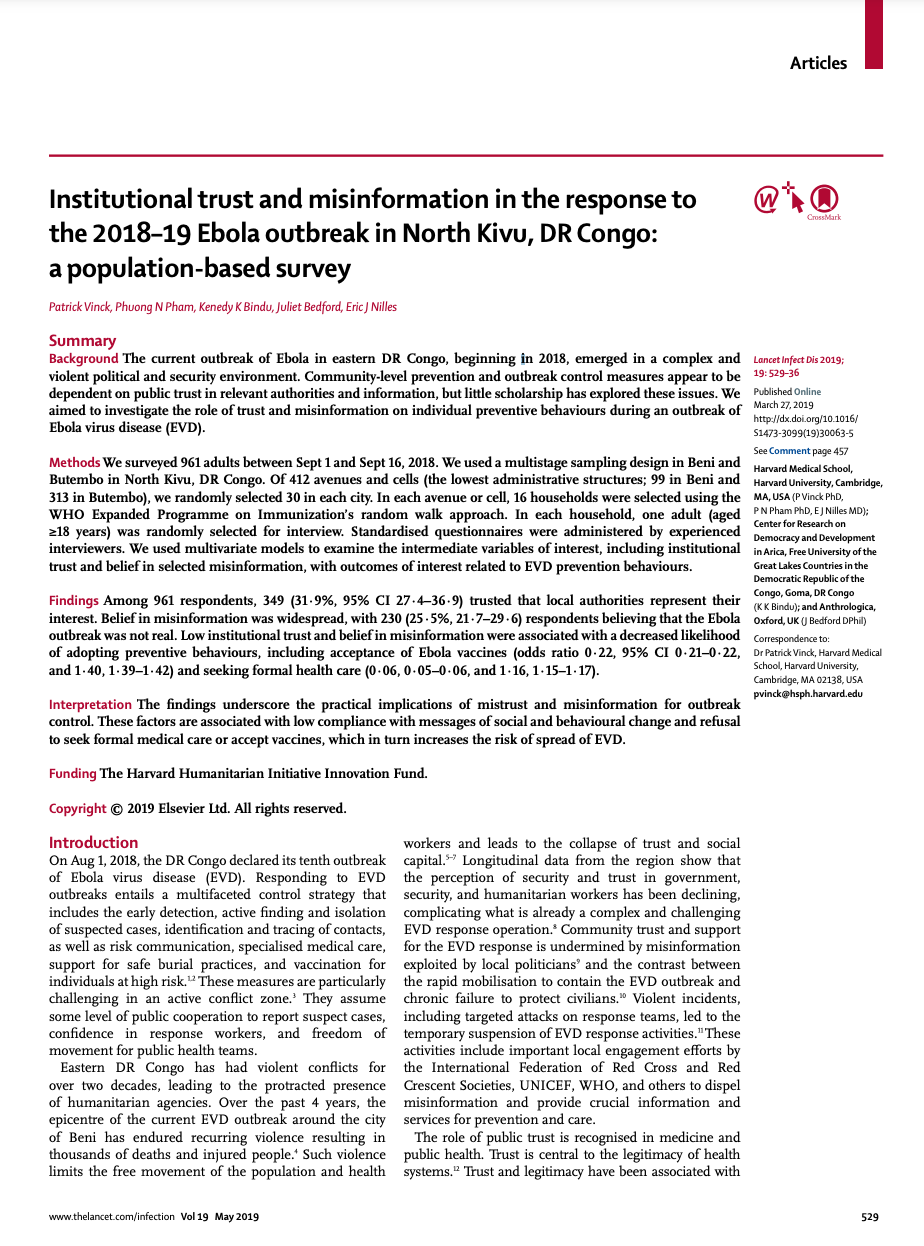Institutional trust and misinformation in the response to the 2018–19 Ebola outbreak in North Kivu, DR Congo: a population-based survey
Description
The outbreak of Ebola in eastern DR Congo, beginning in 2018, emerged in a complex and violent political and security environment. Community-level prevention and outbreak control measures appear to be dependent on public trust in relevant authorities and information, but little scholarship has explored these issues. We aimed to investigate the role of trust and misinformation on individual preventive behaviours during an outbreak of Ebola virus disease (EVD)."}”>The outbreak of Ebola in eastern DR Congo, beginning in 2018, emerged in a complex and violent political and security environment. Community-level prevention and outbreak control measures appear to be dependent on public trust in relevant authorities and information, but little scholarship has explored these issues. We aimed to investigate the role of trust and misinformation on individual preventive behaviours during an outbreak of Ebola virus disease (EVD).
The authors surveyed 961 adults between Sept 1 and Sept 16, 2018. They used a multistage sampling design in Beni and Butembo in North Kivu, DR Congo. Of 412 avenues and cells (the lowest administrative structures; 99 in Beni and 313 in Butembo), they randomly selected 30 in each city. In each avenue or cell, 16 households were selected using the WHO Expanded Programme on Immunization’s random walk approach. In each household, one adult (aged ≥18 years) was randomly selected for interview. Standardised questionnaires were administered by experienced interviewers. The authors used multivariate models to examine the intermediate variables of interest, including institutional trust and belief in selected misinformation, with outcomes of interest related to EVD prevention behaviours.
Among 961 respondents, 349 (31·9%, 95% CI 27·4–36·9) trusted that local authorities represent their interest. Belief in misinformation was widespread, with 230 (25·5%, 21·7–29·6) respondents believing that the Ebola outbreak was not real. Low institutional trust and belief in misinformation were associated with a decreased likelihood of adopting preventive behaviours, including acceptance of Ebola vaccines (odds ratio 0·22, 95% CI 0·21–0·22, and 1·40, 1·39–1·42) and seeking formal health care (0·06, 0·05–0·06, and 1·16, 1·15–1·17).
The findings underscore the practical implications of mistrust and misinformation for outbreak control. These factors are associated with low compliance with messages of social and behavioural change and refusal to seek formal medical care or accept vaccines, which in turn increases the risk of spread of EVD.
Additional languages

DETAILS
Publication
Authors
Emergency
Language
Region
Keywords

